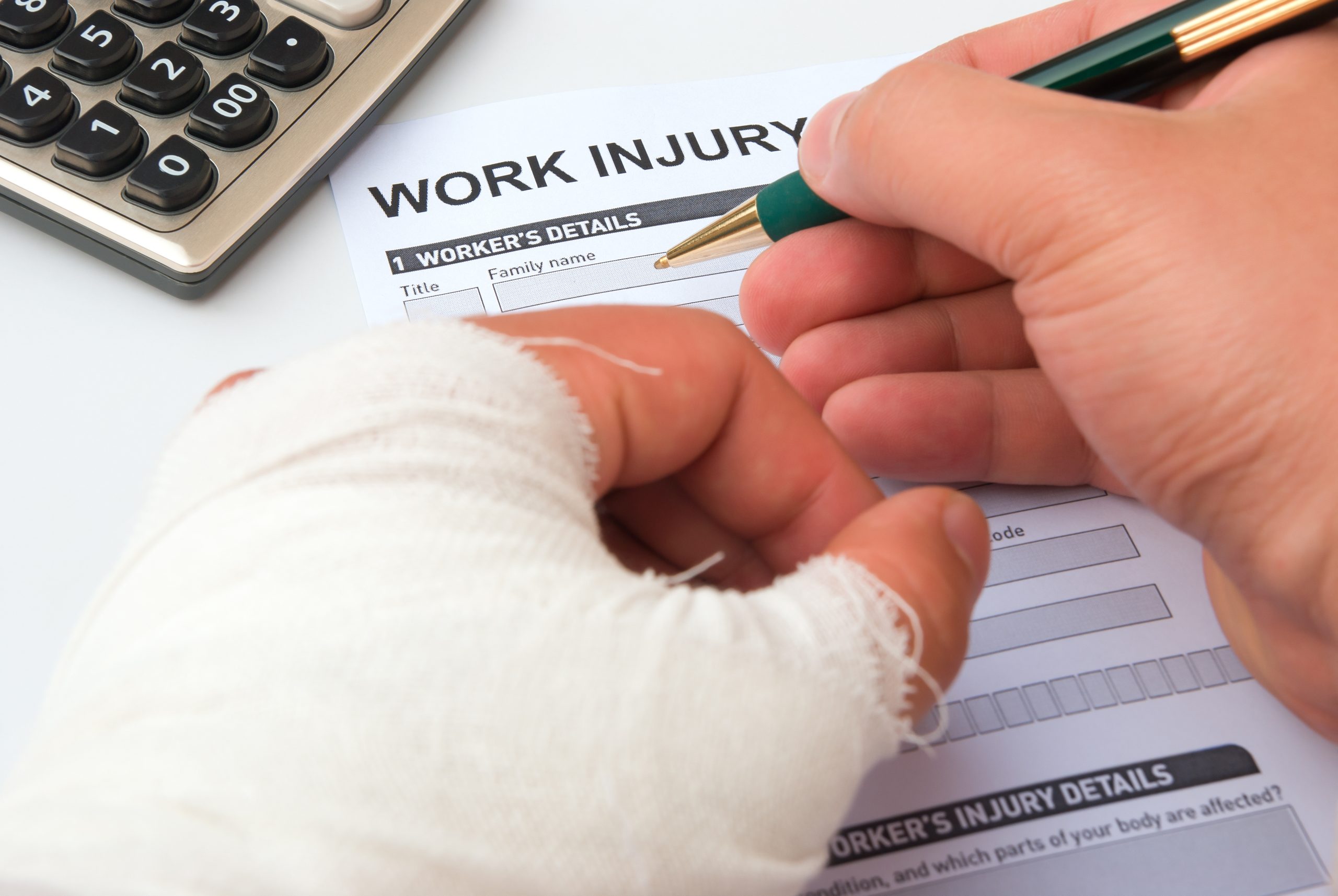If you live and work in the state of Florida, it is important to understand how the workers compensation system operates. In the event of an injury or accident sustained while on the job, workers compensation provides monetary benefits that can help you and your family get through a difficult situation.
The filing process for Florida is a simple, but a critical first step in the workers compensation system. Three parties are involved- the injured employee; employer; and insurance carrier. Each party has responsibilities that are vital in making the process work. It starts with the injured employee. Ideally, when a worker gets hurt in the workplace, he/she would inform their supervisor immediately, and, if necessary, go to the appropriate doctor, clinic or emergency room for medical treatment. However, the law says that you have 30 days from the date of the accident to report an injury. In some cases, that makes sense because the worker may initially experience only mild discomfort with something like a cut or muscle pull and not seek immediate treatment. As time goes on, however, the cut could get infected, or the muscle pull get aggravated and the employee suddenly realizes he/she needs treatment. That is why it makes sense to report an injury to a supervisor right away. Get it on record that something happened that may require medical attention. You will not regret it.
What Florida Workers Comp Covers
Under Florida workers comp law, accidental injuries and diseases arising out of the course of employment are both covered. In Florida, if you are injured because of a work-related accident or illness, your employer’s workers compensation coverage may entitle you to medical benefits and some wage replacement benefits.
In Florida, workers compensation for medical benefits includes:
- Doctor visits
- Hospitalization
- Physical therapy
- Medical tests
- Prescription drugs
Here is what else can be paid for by Florida workers comp insurance:
- Travel expenses to and from an authorized treatment center or pharmacy.
- Wage replacement benefits are available if your earnings are lower because of a work-related injury. The wage replacement will equal two-thirds of your regular weekly wage prior to the injury.
- Temporary total disability benefits are provided because of an injury or illness that temporarily prevents you from returning to work.
- Temporary partial disability benefits are offered when a doctor releases you to return to work with restrictions.
- Permanent impairment benefits are available when the injury or illness causes physical, psychological, or functional loss on a permanent basis.
- Permanent total benefits are provided when the injury causes you to be permanently and totally disabled.
- Death benefits are paid for deaths resulting from workplace accidents and include the payment of funeral expenses and dependency benefits.
- Workers’ compensation benefits for lost wages start on the eighth day that the injured employee is unable to work. In most cases, the wage replacement benefits will be equal to two-thirds of the employee’s regular weekly wage.
Deadlines for Florida Workers Comp Claims
The deadlines for filing workers compensation claims in Florida are clear, but it should be noted that an injured employee has up to two years to file a claim for benefits.
Here are the deadlines for the various parties involved in workers compensation:
Employee: It is best for employees to report an injury sooner rather than later, but the law allows 30 days from the time of the accident to report an injury to the employer.
Employer: The employer must file an injury report with the insurance carrier within seven days of being notified. Employers also must notify the insurance carrier within 14 days if the employee has missed seven days of work because of the injury.
Insurance carrier: The insurance carrier has 14 days to file the first report of injury but has only three days from being notified of an injury to send a brochure to the injured employee that outlines their rights, benefits, and procedures for obtaining benefits, as well as their legal obligations.
Occupational Diseases: If you are filing for death benefits due to occupational diseases, the death must have occurred within 350 weeks of the deceased’s last exposure to the source.
Degree of Impairment
The more severe your impairment, the more benefits you will likely receive via workers compensation.. Severity is determined by percentage points, and you get more weeks of pay per percentage point. Here is how it works:
- Impairment rating of 1-10%: Two weeks of benefits per percentage point.
- Impairment rating of 11-15%: Three weeks of benefits per percentage point.
- Impairment rating of 16-20%: Four weeks of benefits per percentage point.
- Impairment rating of 21% or more: Six weeks of benefits per percentage point.
You will receive an impairment rating once you have reached maximum medical improvement, which is the point at which your medical condition will not improve. If you are still disabled at that point, the doctor will give you an impairment rating, which is the percentage that identifies what level of impairment you have with that body part. You will then receive pay for a specific number of weeks based on that impairment rating. When you receive workers compensation benefits, your medical bills are paid. You may also receive partial or full disability benefits, either temporarily or permanently. If you are permanently totally disabled, you will be entitled to two-thirds of your pre-injury income. If you have an impairment rating of above 20%, you may be classified as permanently disabled and not able to return to your job. This means you may be entitled to receive payments indefinitely.
However, if you are permanently partially impaired, you can only receive payments for a temporary period based on the impairment schedule listed above. Keep in mind that the payments build upon each other. What this means is that if you are 19% impaired, you would get benefits for:
- 20 weeks (for the first 10%)
- 15 weeks (for the 11% to 15%)
- 16 weeks (for the 15% to 19%)
You would get paid for a total of 51 weeks, and your payment would equal 75% of the disability rate.
Why Are Workers Compensation Claims Different?
Not all personal injury claims are alike. This is especially true when it comes to workers compensation claims. That is because personal injury claims are built on the premise of negligence or wrongdoing. If you can prove either of those elements, then you may be able to receive compensation for medical bills, lost wages, pain and suffering, and other damages. In a worker’s comp claim, on the other hand, you are generally prohibited from suing your employer. You must recover compensation through the workers compensation system. In addition, your compensation is limited based on the level of impairment and maximum payouts. Workers’ compensation is not perfect. It does not pay for damages like pain and suffering and emotional distress. However, on the upside, it can be easier to make your claim and recover payment for losses since you do not have to prove negligence to recover compensation. Your employer is almost always responsible for paying for your workplace injuries, regardless of fault. Also, keep in mind that workers compensation claims are not settled overnight. Many cases are complex, and you can expect it to take around 12 to 18 months to resolve your claim.



